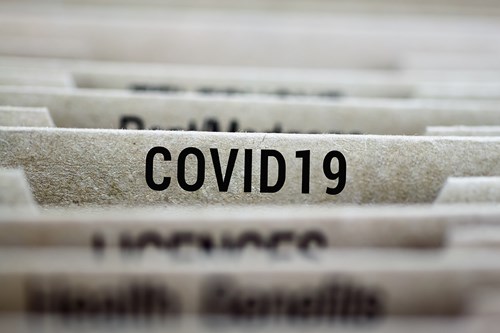Police officers told they must wait their turn to receive the Covid-19 vaccination
9 February 2021

Health Secretary Matt Hancock has told police officers in no uncertain terms that they will have to wait their turn to receive the Covid-19 vaccine - and that they will not be prioritised.
Mr Hancock directly addressed a question from a police officer – Samantha from Lancashire – during the regular Downing Street briefing, who asked “when are frontline police officers likely to receive the vaccine?”
Despite lobbying from the Police Federation, Chief Police Officers, the Met Commissioner and the College of Policing over police officers needing to have a level of priority for the vaccine to keep themselves, their families and the public safe, Mr Hancock replied that officers will not be prioritised until after groups 1-9, as deemed by the Joint Committee on Vaccination and Immunisation.
So they will not be eligible for the vaccine until after the first 32 million people in the country have received it.
Mel Warnes, Chair of Surrey Police Federation, said: “The Government are relying on police officers every day to police the pandemic without prioritising them to receive a vaccine to protect themselves and others.
“Every day officers are putting themselves and their families at risk. Surrey Police, like many other police forces are experiencing police officers and staff catching the virus at work. This in turn causes, in some cases entire teams to self-isolate, putting extra pressure on colleagues to cover the shortfall in officer numbers.
“Service to the public will suffer with the lack of officers available to deal with demand placed upon them.”
Mel added: “We are in a position, unfortunately where we all know someone who has died or who is seriously ill from this virus in the force.
“The numbers of police officers nationally is a very small proportion to the numbers being vaccinated. We are talking about 130,000 officers. Compare this to the number of daily vaccinations.
“A large majority who are most vulnerable in society have received a vaccine. It is time for the Government to start focussing on who they rely upon day in day out to police the pandemic and do the best they can for them. Words now are not enough. Action is needed.”
In a pre-prepared statement last night – so Mr Hancock would have been aware of the question coming – police officer Samantha asked the Health Secretary: “When are frontline police officers likely to receive the vaccine? Like paramedics they have to go into many different houses a day and there is a high risk of either taking the virus home or passing it on to one of the many elderly or vulnerable people they come into contact with on a daily basis.”
Mr Hancock replied: “Thank you very much Samantha. A very important question and I want to thank police colleagues who are doing so much to protect us at this time, including making sure that the rules that we have on social distancing are enforced and I’m particularly grateful to the police for the work that they’re doing on expanding that enforcement.
“Directly answering your question, we have ensured, through the clinical advice that we’ve taken, that the vaccine rollout goes through those who are most at risk first. So any police officer who is aged over 50 will be part of the initial rollout through the current groups down to what I call the JCVI cohorts 1-9, from the Joint Committee on Vaccinations and Immunisations which advises us on the clinical basis for the order.
“After that we will then look at what order we go next and we’ll consider, for instance, questions of people who are in professions where you might have to be in contact with more people and the impact of the vaccine on transmission and make a decision and publicise it as soon as we’ve made that decision.
“No decision has yet been made in what order we’ll go after the JCVI cohorts 1-9 but we’re looking very closely, including at where police officers should be in that order.”














